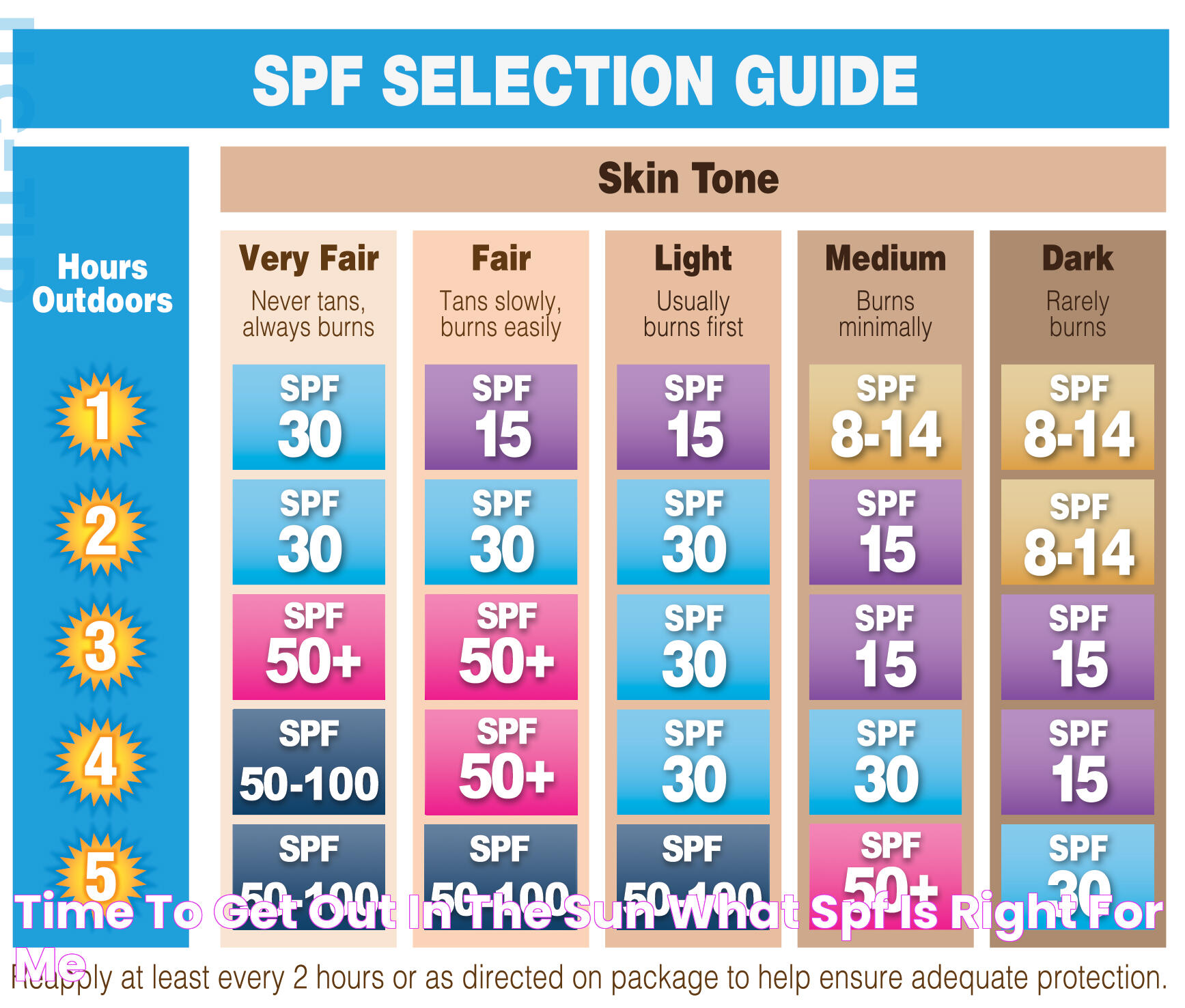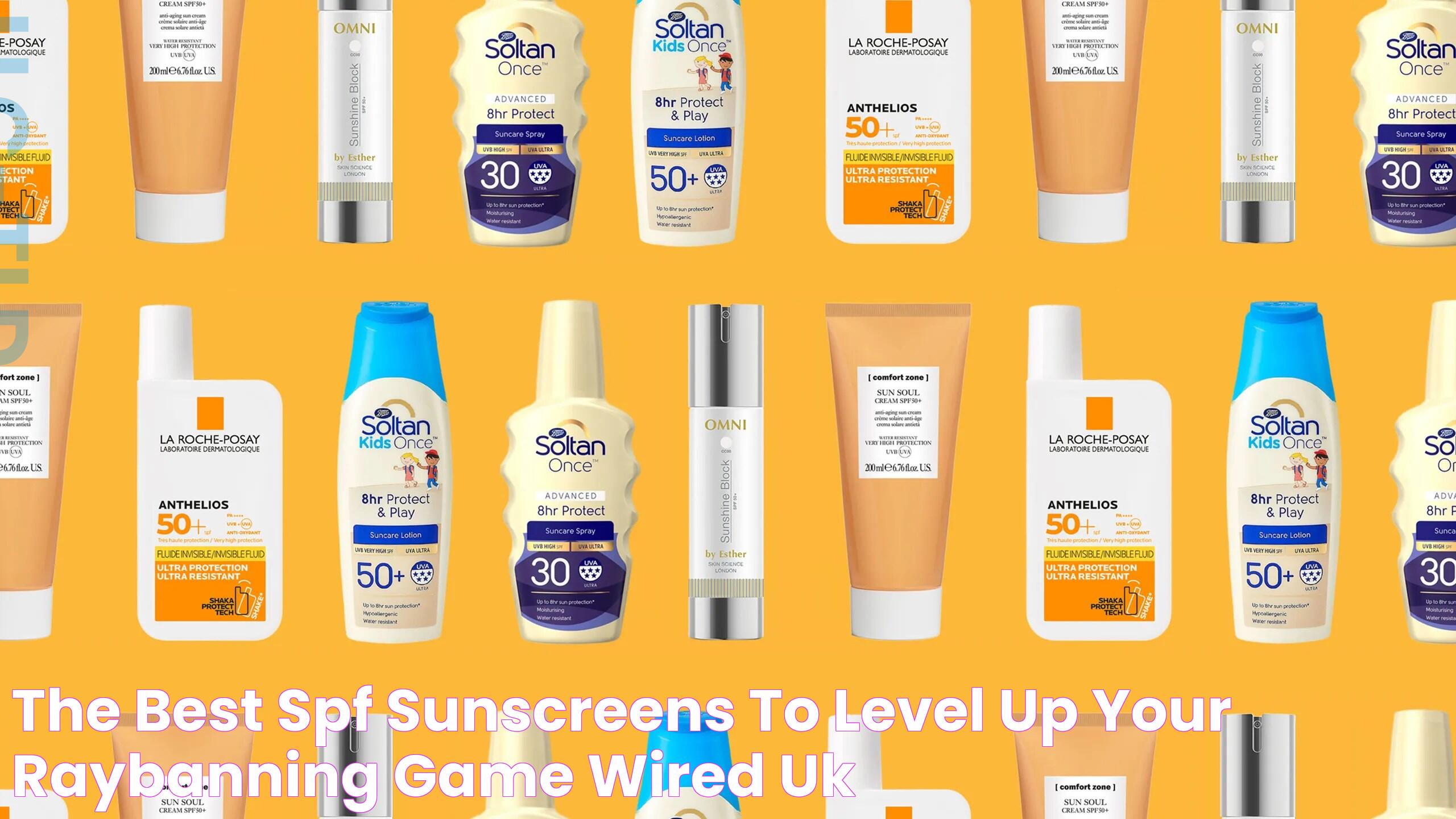Choosing the right sunscreen can be a daunting task, especially with the myriad of options available on the market today. One of the most crucial factors to consider when selecting a sunscreen is its SPF, or Sun Protection Factor. Understanding what is the best SPF for sunscreen is essential to ensure optimal skin protection against the sun's harmful ultraviolet (UV) rays. But what does SPF mean, and how can you determine which SPF number is right for you? In this comprehensive guide, we will explore the nuances of SPF, its importance, and provide you with insights to make an informed decision.
The significance of SPF in sunscreen cannot be overstated. It acts as a shield, defending your skin from UVB rays, which are primarily responsible for causing sunburn and contributing to skin cancer. The SPF number indicates how well a sunscreen can protect your skin from UVB rays. For instance, an SPF of 30 means that it will take 30 times longer for your skin to redden compared to no sunscreen at all. However, higher SPF numbers do not necessarily mean exponentially better protection, as the increase in protection becomes marginal beyond a certain point.
To determine what is the best SPF for sunscreen, you must consider various factors such as your skin type, the duration of sun exposure, and the environment you will be in. People with fair skin may require a higher SPF compared to those with darker skin tones. Additionally, activities such as swimming or sweating can affect the efficacy of sunscreen, necessitating the use of water-resistant formulations with adequate SPF. This guide will delve into these considerations, providing you with the knowledge needed to select the best SPF for your sunscreen needs.
Read also:Revolutionary Saltair Serum Deodorant Freshness Meets Skincare
Table of Contents
- Understanding SPF: What Does It Mean?
- How Does SPF Work?
- Choosing the Right SPF for Your Skin Type
- SPF and Sun Exposure Duration: Does Time Matter?
- What Environmental Factors Influence SPF Need?
- The Importance of Water-Resistant Sunscreens
- SPF Myths and Facts: What Should You Believe?
- Broad Spectrum Protection: Why It Matters?
- Chemical vs. Mineral Sunscreens: Which is Better?
- Application Techniques for Effective Protection
- Is SPF 50 Better Than SPF 100?
- What SPF is Best for Children and Sensitive Skin?
- Do Seasonal Changes Affect SPF Requirements?
- Frequently Asked Questions
- Conclusion
Understanding SPF: What Does It Mean?
The Sun Protection Factor (SPF) is a measure of how well a sunscreen can protect your skin from UVB rays, the kind of radiation that causes sunburn and contributes to skin cancer. The SPF number indicates the level of protection it provides. For example, if your skin normally begins to redden after 10 minutes in the sun, using an SPF 30 sunscreen theoretically allows you to stay in the sun 30 times longer without burning.
How Does SPF Work?
SPF works by extending the time it takes for UVB rays to affect your skin. It's essential to understand that SPF is not a measure of time, but rather a measure of protection. Higher SPF numbers do not imply longer-lasting protection but rather increased protection against UVB rays. However, it's crucial to reapply sunscreen every two hours, or more frequently if you're swimming or sweating.
Choosing the Right SPF for Your Skin Type
When choosing what is the best SPF for sunscreen, it’s essential to consider your skin type. Fair-skinned individuals are more susceptible to sunburn and may require a higher SPF, while those with darker skin tones may not need as high an SPF. However, dermatologists generally recommend an SPF of at least 30 for daily use, as it blocks 97% of UVB rays.
SPF and Sun Exposure Duration: Does Time Matter?
The duration of sun exposure is a critical factor in determining the appropriate SPF level. For short periods of sun exposure, an SPF of 15-30 may suffice. However, for extended periods spent outdoors, particularly during peak sun hours, a higher SPF is recommended. It’s also important to consider the UV index, which can influence the required SPF level for effective protection.
What Environmental Factors Influence SPF Need?
Various environmental factors can affect the effectiveness of sunscreen and the SPF required. These include altitude, latitude, and reflective surfaces like water, sand, and snow. At higher altitudes, UV radiation is more intense, necessitating a higher SPF. Similarly, near the equator, the sun is more direct, increasing exposure to UV rays.
The Importance of Water-Resistant Sunscreens
Water-resistant sunscreens are crucial for activities involving water or excessive sweating. These formulations are designed to remain effective even when exposed to moisture. While no sunscreen is completely waterproof, water-resistant options maintain their SPF rating for a specified duration while swimming or sweating.
Read also:Timeless Elegance Of Mac Russian Red Lipstick The Ultimate Lip Color
SPF Myths and Facts: What Should You Believe?
There are many misconceptions about SPF and sunscreen use. One common myth is that a higher SPF provides double the protection of a lower SPF, which is not true. The increase in protection becomes marginal with higher SPF values. Understanding these myths and facts can help you make informed decisions about sun protection.
Broad Spectrum Protection: Why It Matters?
Broad-spectrum sunscreens offer protection against both UVA and UVB rays. While SPF focuses on UVB protection, UVA rays can also cause skin damage and contribute to aging. Choosing a broad-spectrum sunscreen ensures comprehensive protection against the full spectrum of UV radiation.
Chemical vs. Mineral Sunscreens: Which is Better?
Chemical sunscreens absorb UV rays, converting them into heat, while mineral sunscreens physically block UV rays. Both types have their pros and cons. Chemical sunscreens tend to be more lightweight and easier to apply, while mineral sunscreens are often preferred for sensitive skin due to their natural ingredients.
Application Techniques for Effective Protection
Proper application of sunscreen is vital for effective sun protection. It's recommended to apply sunscreen 15-30 minutes before sun exposure and to use enough to cover all exposed skin. Reapplication every two hours, or immediately after swimming or sweating, is crucial to maintain protection.
Is SPF 50 Better Than SPF 100?
While SPF 100 provides slightly more protection than SPF 50, the difference is minimal. SPF 50 blocks about 98% of UVB rays, compared to 99% for SPF 100. The key is to apply sunscreen correctly and consistently, rather than solely focusing on the SPF number.
What SPF is Best for Children and Sensitive Skin?
Children and individuals with sensitive skin require special consideration when selecting sunscreen. Mineral sunscreens with a high SPF are often recommended for their gentle formulation. It's also important to choose sunscreens free from fragrances and other potential irritants.
Do Seasonal Changes Affect SPF Requirements?
Seasonal changes can impact the intensity of UV radiation, influencing the SPF needed. During summer months, when UV exposure is highest, a higher SPF may be necessary. However, UV rays can still be harmful in winter, especially in snowy areas where the sun's rays reflect off the snow.
Frequently Asked Questions
- What is the best SPF for sunscreen for daily use?
Dermatologists recommend using a broad-spectrum sunscreen with at least SPF 30 for daily use to protect against both UVA and UVB rays.
- Does a higher SPF mean better protection?
A higher SPF provides slightly better protection, but the difference becomes marginal above SPF 50. Consistent application is more important.
- Can I use last year's sunscreen?
Check the expiration date, as expired sunscreen may not offer the same level of protection. If it's expired, it's best to purchase a new one.
- Is SPF needed on cloudy days?
Yes, UV rays can penetrate clouds, so wearing sunscreen on cloudy days is still essential to protect your skin.
- How much sunscreen should I apply?
Apply enough sunscreen to cover all exposed skin, typically about an ounce (a shot glass full) for the entire body.
- What is the best SPF for sunscreen when swimming?
Use a water-resistant sunscreen with at least SPF 30 and reapply immediately after swimming or toweling off.
Conclusion
Understanding what is the best SPF for sunscreen is vital for effective sun protection. By considering factors such as skin type, sun exposure duration, and environmental conditions, you can select the appropriate SPF to safeguard your skin. Remember, sunscreen is just one part of sun protection. Wearing protective clothing, seeking shade, and avoiding peak sun hours are also crucial steps in protecting your skin from harmful UV rays. Stay informed and vigilant, and enjoy the sun safely!
For more detailed information on sun safety and skin care, consider visiting reputable sources like the Skin Cancer Foundation.

